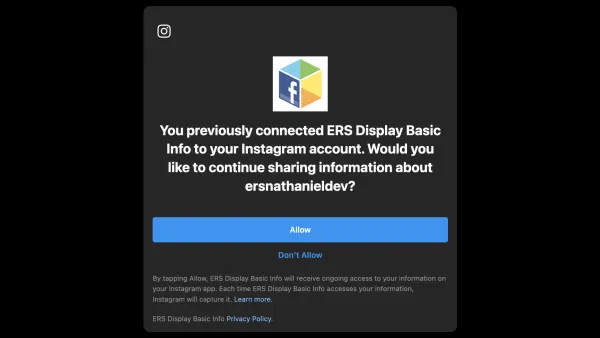
Technical Implementation
Technologies used include OAuth 2.0, Express.js, Node.js, a NoSQL database, and the Instagram Display Basic API. The core of the plugin is a custom OAuth library built to be compatible with ERS's specific Proxy API. This library manages the authentication process, allowing users to grant access to their Instagram accounts with a single click from their control panel. The plugin stores access tokens securely in a NoSQL database, ensuring persistent access without compromising security. The Instagram Display Basic API is then utilized to fetch and display the user's public posts wherever they choose on their website.

Development Challenges
One significant challenge encountered during development was the need for a secure local environment for testing OAuth flows. This required generating a cert key, a local-only security certificate, to simulate a secured connection on localhost. Another challenge was designing a user-friendly interface that seamlessly integrated with the existing ERS control panel while providing clear feedback on the connection status with Instagram.

Impact and Future Potential
The Instagram Feed Plugin represents a significant step forward in social media integration for ERS clients. By allowing businesses to easily display their Instagram content, the plugin offers enhanced engagement opportunities and a more dynamic web presence. Although not released, the development process provided valuable insights into API integration, OAuth implementation, and user experience design. Future improvements could include support for additional social media platforms, more customizable display options, and enhanced analytics features to help businesses track the performance of their social media integration.



